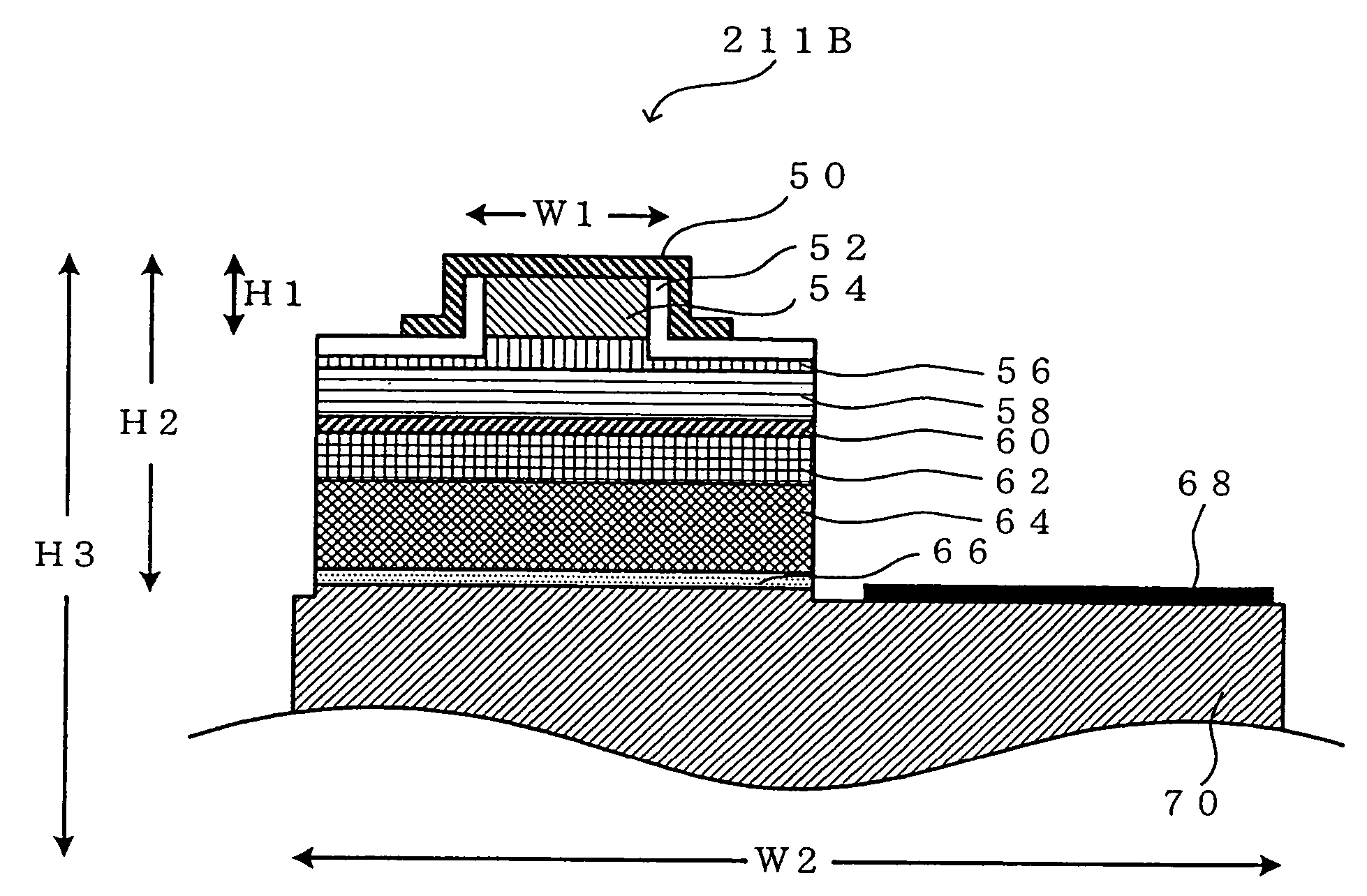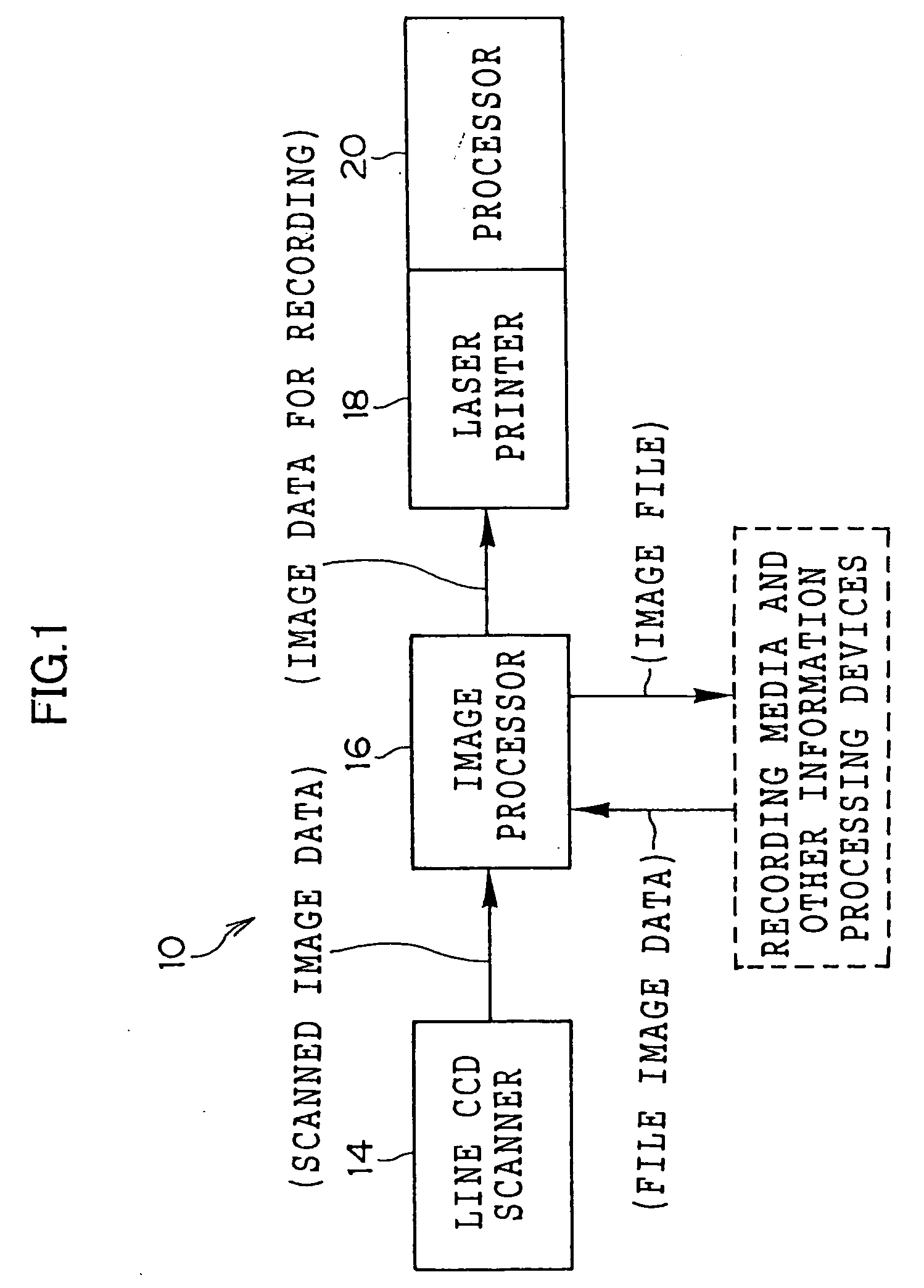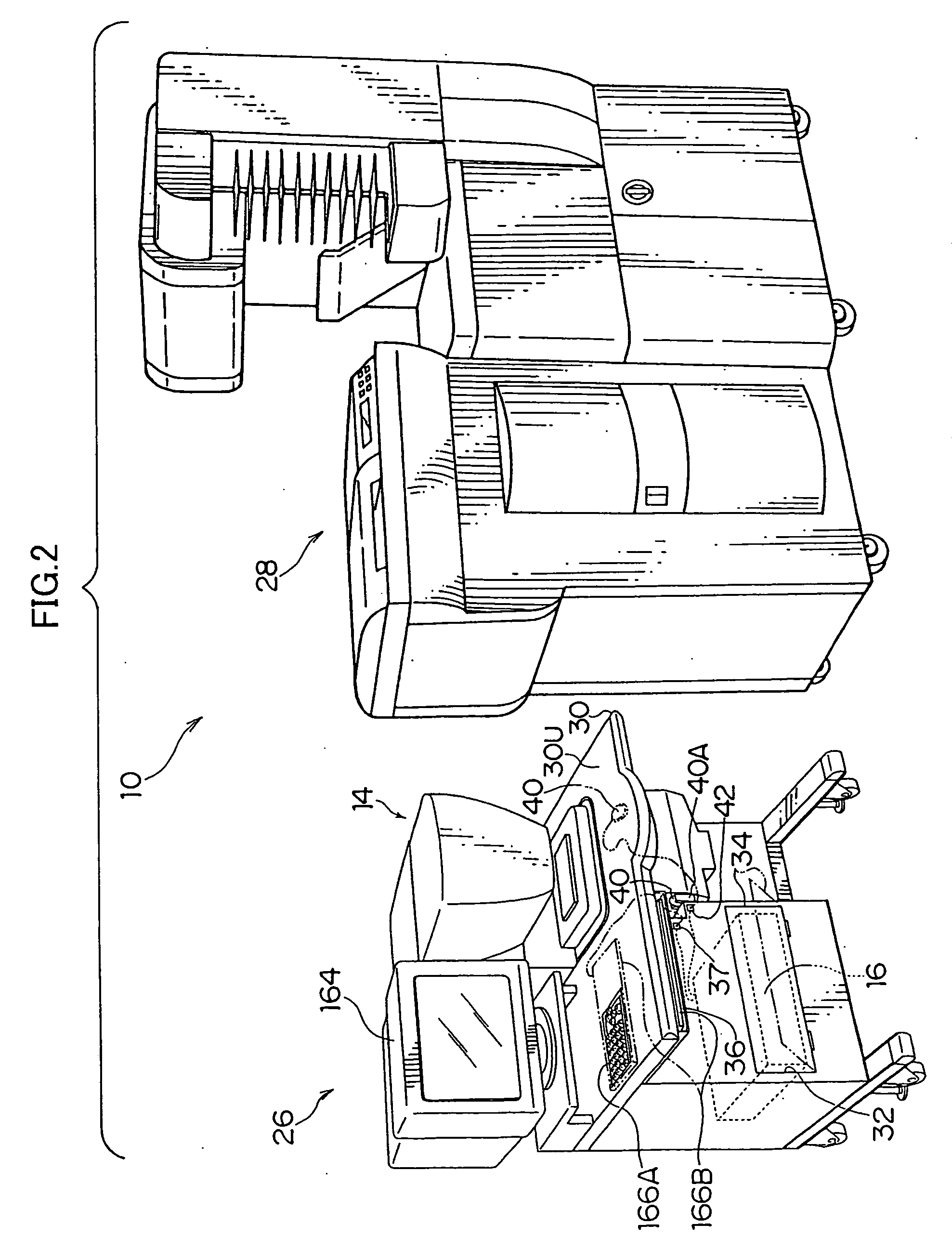Image exposure device and laser exposure device applied thereto
a laser exposure and image technology, applied in semiconductor lasers, printing, instruments, etc., can solve the problems of remarkable degradation, extremely high sensitivity, and blurry characters and blurry images, and achieve the effect of maximizing the diffraction efficiency
- Summary
- Abstract
- Description
- Claims
- Application Information
AI Technical Summary
Benefits of technology
Problems solved by technology
Method used
Image
Examples
first embodiment
[0076] An example of a first embodiment of the invention will be described in detail below with reference to the drawings. It should be noted that the present embodiment is one in which the invention is applied to a digital laboratory system.
Schematic Description of Overall System
[0077]FIG. 1 shows the schematic structure of a digital laboratory system 10 pertaining to an embodiment of the invention, and FIG. 2 shows the digital laboratory system 10 in perspective view. As shown in FIG. 1, the digital laboratory system 10 comprises a line CCD scanner 14, an image processor 16, a laser printer 18 that serves as an image exposure device, and a processor 20. As shown in FIG. 2, the line CCD scanner 14 and the image processor 16 are integrated as an input section 26, and the laser printer 18 and the processor 20 are integrated as an output section 28.
[0078] The line CCD scanner 14 is for reading a film image (a negative image or a positive image visualized by developing and processin...
second embodiment
[0124] Next, a second embodiment of the invention will be described. Description of structures that are the same as those described in the first embodiment will be omitted.
[0125] In the second embodiment of the invention, in contrast to the laser printer in the first embodiment, the collimator lens 213, the limiter 200, and the cylindrical lens 217 are successively disposed at the laser light emission side of the laser light source 211B. Laser light emitted from the laser light source 211B is collimated by the collimator lens 213, and an amount of light that is predetermined in correspondence to the amount of light emitted from the laser light source 211B is limited by the limiter 200. The laser light is irradiated at a position that is substantially the same as the above-described predetermined position on the reflective surface of the polygon mirror 218 and reflected by the polygon mirror 218.
[0126] It is possible to use a light filter (density filter or the like) or a half mirr...
third embodiment
[0141] Next, a third embodiment of the invention will be described. Description of structures that are the same as those described in the first and second embodiments will be omitted.
[0142] The laser printer in the third embodiment of the invention includes the following characteristics that are different from those of the first and second embodiments.
[0143] The collimator lens 213 and the cylindrical lens 217 are successively disposed at the laser light emission side of the laser light source 211R. Laser light emitted from the laser light source 211R is collimated by the collimator lens 213 and irradiated via cylindrical lens 217 at a position that is substantially the same as the above-described predetermined position on the reflective surface of the polygon mirror 218 and reflected by the polygon mirror 218.
[0144] The collimator lens 212 and the acoustooptic modulator (AOM) 214G that serves as an outside modulator are successively disposed at the laser light emission side of t...
PUM
 Login to View More
Login to View More Abstract
Description
Claims
Application Information
 Login to View More
Login to View More - R&D
- Intellectual Property
- Life Sciences
- Materials
- Tech Scout
- Unparalleled Data Quality
- Higher Quality Content
- 60% Fewer Hallucinations
Browse by: Latest US Patents, China's latest patents, Technical Efficacy Thesaurus, Application Domain, Technology Topic, Popular Technical Reports.
© 2025 PatSnap. All rights reserved.Legal|Privacy policy|Modern Slavery Act Transparency Statement|Sitemap|About US| Contact US: help@patsnap.com



